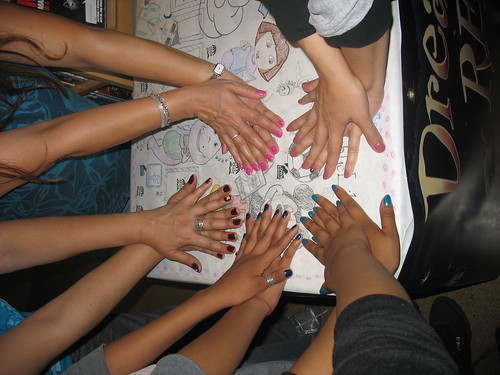When writing your book, consider the audience. A book with 15 year olds is a good choice for someone a few years younger, and characters that are say, 16-18 are better for a 14-15 year old. The reason? When you're a teen, you want to be a bit older than you currently are. I don't know what it is about that, but until you're in your 20s, the idea of being older is the cat's meow.
 |
| Photo by: Sarah Alamimi, courtesy of Flickr |
When was the last time you heard "the cat's meow"? This brings us to tip number two. How do teens speak these days? What phrases do they use? What do they say when they're frustrated, sad, excited? Now, I'm the first to admit that many teens swear, and I'm not promoting swearing here, but I like the thought of someone getting angry and using a lighter slang word to get their point across.
What happens to a teen reader that has to read a classic? Well, unless they are of the unusual variety, nothing much. Teens need action, and lots of it. They need dialogue and a smattering of setting, but not so much that they decide to skip the 'boring' parts. Teens need teens that do scary things; things they've only dreamt about, but they also need realistic stories that deal with trauma in a real and positive way.
Does your main character have cancer? How does she deal with it? Are her parents divorced? How does she feel about that?
 |
| Photo by: San Jose' Library, courtesy of Flickr |
If you have a hard time relating to teens in your own life, you may have a hard time writing about them. If this is the case you need to spend some quality time, or at the very least, do some focused observation.
Unless your book is taking place in the 50s or 60s when you were a kid, you'll need a sufficient update.
Write teen books yourself? What advice do you have?
This book is primarily for the middle reader, can you see why?


No comments:
Post a Comment
Thank you for your comment.